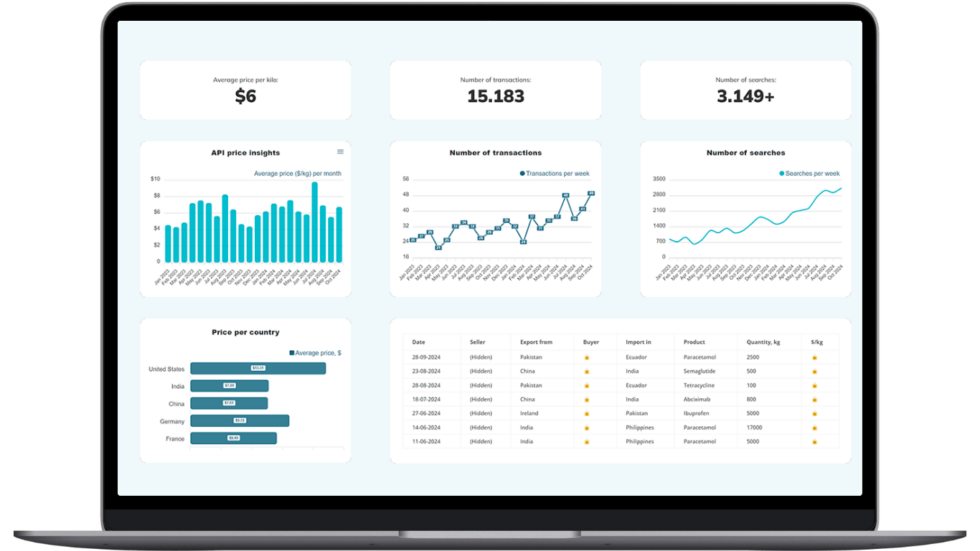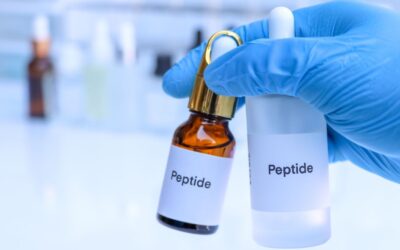What are Pharma Audits?
Everything you need to know

Ammar Badwy | Posted on November 15, 2023
Introduction
When you pick up medication from a pharmacy, you might find the name on the label to be a tongue twister. But at least you should be able to assume that the pills inside the box are exactly what they are supposed to be and that they are safe for consumption.
It doesn’t come from the belief that people in the pharmaceutical industry never make mistakes because errors can occur in any field, including pharmaceuticals. So what’s the secret then? Because of an industry-wide supported quality system – audits play a crucial role.
So, if we need to audit another pharma company, how do we do that? What skills do we need? And how much does it, on average, cost to perform an audit? We’ll cover this and more in this article.
Importance of Auditing Suppliers
Scenario: Company Y
To understand better, let’s say we both work for a company that produces medicine – Company Y. We want to produce medicines that contain Escitalopram to treat depression and anxiety. So we need the API and other ingredients we buy from a supplier. This will be the first time that we do business with the supplier. They seem to have a GMP certificate and a DMF for the API, and they are FDA-inspected.
Based on the certificates, this company looks good, but don’t forget we are responsible for the quality of our medicine. So, are these certificates enough? No. One important aspect is missing. So far, we haven’t seen anything from the supplier with our own eyes. So let’s organize an audit at our supplier.
Understanding Audits
Expert Advice
To make sure we get the most out of this audit, we asked Eduard Cayon for some advice. He is the Chief Scientific Officer at Rephine and has done hundreds of audits worldwide over the last 20 years.
First, we need to know what an audit is and understand what we want to check. In the pharmaceutical industry, quality audits focus on the company’s ability to consistently meet the requirements of GMP and ensure every step in the process is done according to the registration file approved by health authorities.
The most important things we want to check during an audit are: Do they have appropriate facilities, equipment, and services? Do you know if the entire team has the necessary knowledge? Is there a mature quality system? How about an adequate and representative documentation and record-keeping system? Is there a risk management mindset and critical thinking? What about continuous training? Leadership and staff engagement. And data integrity that provides traceability of all relevant operations. So, an audit is an independent and systematic examination of an organization and its processes.
Eduard Cayon, Rephine
Audit Preparation
Okay, we’ve arranged a date with the supplier and booked plane tickets and a hotel. So what’s next? We want to prepare for the audit. The audit process involves several steps, including checking public information about the company or person we are about to audit, preparing a pre-audit questionnaire, reviewing reports from previous audits, and assessing which products and processes will be audited.
All of these steps contribute to evaluating a potential risk. By the way, if your company gets audited, a tip is to study the profile of the auditors. So you’re prepared for his or her expertise.
The Audit Day
It’s audit day today! This means that we will be visiting our supplier. So, who will we meet? Usually, the site manager, the quality manager, the production manager, the logistic manager, the engineering manager, and some quality officers. The time is limited, and an audit typically takes a day or two. In that period, we have to find out all we want to know. When we arrive at the manufacturing plant, they will usually welcome us to have a coffee and a chat before the audit starts, and then we begin!
Most of the time, they will tell us everything they want us to know about their company. Consider it as some form of theater, and now it’s our job not to stay in this theater but to take the lead and talk about the topics we want to discuss. But how do you do that Eduard?
Audit Techniques
For example, we enter a facility, and the people will start to explain many things like here is the reactor, here is the But I’m sorry. I will make the questions. I can see everything, such as the reactor. But my question is X. And then you take the leadership of the audit, not the auditee.
Another tactic could be not to start the audit in the most logical order. By beginning in another way, you can start with the subject you find more critical. If you start, for example, in the warehouse, which is a less critical area, you might lose a lot of time there. So it would be better to start at the most crucial place while you’re still fresh and when there is still much time left. It’s also a way of taking control over the audit.
Eduard Cayon, Rephine
Audit Components
Usually, an audit consists of two parts. First, we check the facilities and talk with the people within the organization. Then, we dive into the paperwork. Most of the time, international audits are in English, but in some cases, an official and skilled translator is part of the auditing team. During the audit, you can classify your findings into minor, major, or critical findings. In case of a critical finding, action needs to be taken immediately.
However, the most common findings are related to data integrity, cleaning, quality oversight, and material management. It’s probably not the most fun part, but it’s very important to write the report after we’ve performed the audit.
Supplier Audit vs GMP Inspection
What’s the difference between a health authority inspection like GMP and a supplier audit? When you audit your API supplier, it will be based on two important aspects. First, you want to be sure that this supplier will also pass future authority inspections. If you add the supplier to your application file, you’re quite dependent on it.
So you want to make sure they will pass future GMP audits, too. Second, the supplier audit will be focused on processes relevant to the product you buy. For example, you can dive into specific complaints, data, and knowledge related to your API.
Did audits change over the years?

Yes, I think 20 years ago, it was an activity that was not very common. We were the pioneers on that, and then the auditee is not used to receiving audits. I remember that sometimes they welcomed me with flowers, sang their national song to me, and had their country flag out. And it was an event for them that some people from a Western company came to audit their plant.
Also, because they were not used to being audited, they explained many things that were not so strategic to explain.
Eduard Cayon, Rephine
Skills of an Auditor
Communication and Role Play
Some auditors want to demonstrate what they know during the audit. Auditors need to stay away from that. It is a role play, and it is necessary not to forget that this is a role play, no personal issues. It’s just business. Another essential skill is good communication because you should be able to explain clearly, not be negative, be calm, and don’t forget to smile.
Eduard Cayon, Rephine
Cost of Audits
Expense Breakdown
How much does an audit cost? Every audit is different, of course, but you can say that, in general, audits come with serious costs to calculate: it’s three days of preparation, three days of traveling, two days of auditing, three days of reporting, three days of CAPA follow up plus travel expenses.
So, that’s a total of 14 days, depending on the scope of the audit. Sometimes, there are even multiple auditors involved, and we’re talking about senior-level staff here that are high in pay grade. To give you an idea, however, what an audit costs, if you add everything up together, it can be approximately $24,000 per audit.

Make Smarter API Decisions with Data
Access exclusive insights on global API pricing, export/import transactions, competitor activities and market intelligence.
Efficiency with Rephine (ad)
Benefits of Rephine’s Audits
When Rephine audits a company, they are able to provide their audit reports to multiple organizations instead of every single company having to do their own individual audit. Because of this, they are able to offer these audit reports much cheaper. For most pharma companies, doing audits is only something that happens a few times a year.
But for Rephine, as it’s their core business, they are specialized in performing efficient and top-notch audits. They have audited nearly all Pharma companies. We’ll add a link to their global audit library in case you’re looking for a report of any pharma company.
Conclusion
Becoming an Auditor
Do you consider becoming an auditor yourself? As an auditor, you’ll see many companies from the inside. It’s a demanding role, and you need to have several skills like leadership skills, writing reports, and social and analytical skills. But this is, according to Eduard, the most beautiful part of the job!
For me, it has been, after 20 years of doing audits, an opportunity to understand and learn about many different cultures, not with my camera and taking pictures of the monuments, but with a direct relationship with the people who are living there and working in that company. It is another way of getting to know the countries and the cultures.
Eduard Cayon, Rephine
What is a pharmaceutical audit?
A pharmaceutical audit is a systematic, independent examination of a pharmaceutical company's operations and processes to ensure compliance with Good Manufacturing Practices (GMP), regulatory guidelines, and quality standards. Audits can be conducted internally, by regulatory authorities, or by third-party organizations to verify that companies meet industry requirements for producing safe and effective medicines.
Why are audits important in the pharmaceutical industry?
Audits are crucial in the pharmaceutical industry because they help maintain high standards of product quality, safety, and efficacy. They identify potential issues in the production and distribution of pharmaceuticals, ensuring that companies adhere to regulatory requirements, prevent contamination, maintain data integrity, and continuously improve their processes.
How often should pharmaceutical audits be conducted?
The frequency of pharmaceutical audits can vary depending on regulatory requirements, the complexity of operations, previous audit findings, and changes in the production process or regulations. Typically, internal audits are conducted annually, while regulatory and third-party audits may occur every two to three years or as needed.
What are the key areas inspected during a pharmaceutical audit?
Key areas inspected during a pharmaceutical audit include the quality control and assurance systems, manufacturing processes, cleanliness and sanitation practices, equipment maintenance, staff training and qualifications, documentation, and data integrity. Auditors also review compliance with specific regulations and standards relevant to the products being produced.
How much does a pharmaceutical audit typically cost?
The cost of a pharmaceutical audit can vary, but it generally includes preparation, travel, auditing, report writing, and follow-up actions. An average audit might cost around $24,000, considering all these factors.
What is the difference between a GMP inspection and a supplier audit?
A GMP inspection, conducted by health authorities, is a comprehensive review of all practices related to the manufacturing process to ensure they meet legal standards. A supplier audit is more focused and evaluates specific processes related to the products purchased from the supplier.
How does partnering with an organization like Rephine benefit the audit process?
Partnering with an organization like Rephine can streamline the audit process, as they specialize in performing efficient and thorough audits. Their experience allows for a more focused and economical approach, potentially sharing audit reports across multiple organizations and reducing the redundancy of individual audits.
What services does Rephine offer in the pharmaceutical industry?
Rephine provides specialized auditing services for pharmaceutical companies worldwide. Their offerings include conducting thorough GMP audits, providing comprehensive audit reports, and ensuring that pharmaceutical manufacturers comply with regulatory standards for quality and safety.






Check out all other blogs here!